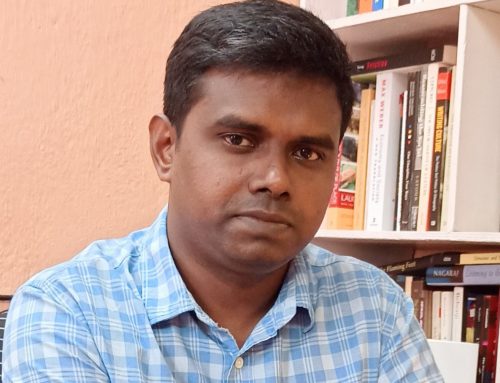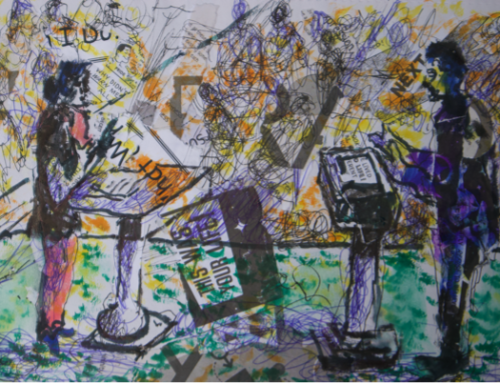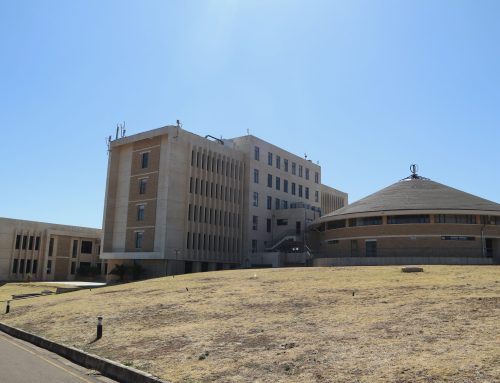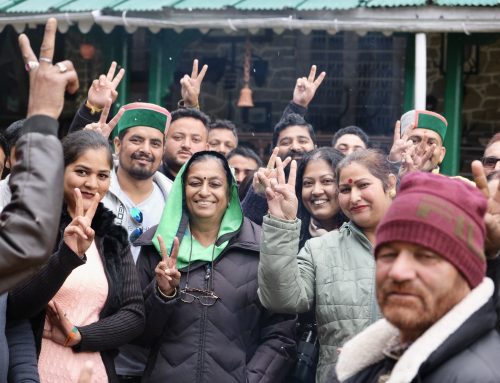Professor Niraja Gopal Jayal reflect on how a series of events have turned the world upside down, and brought into question many of our settled, even complacent, assumptions about the triumphs of democracy in the Global North. The assumption, above all, that Anglo-American liberal-democracy stood on the firm foundations of a fine pedigree, philosophical and political, and time-tested historical practice is being questioned.
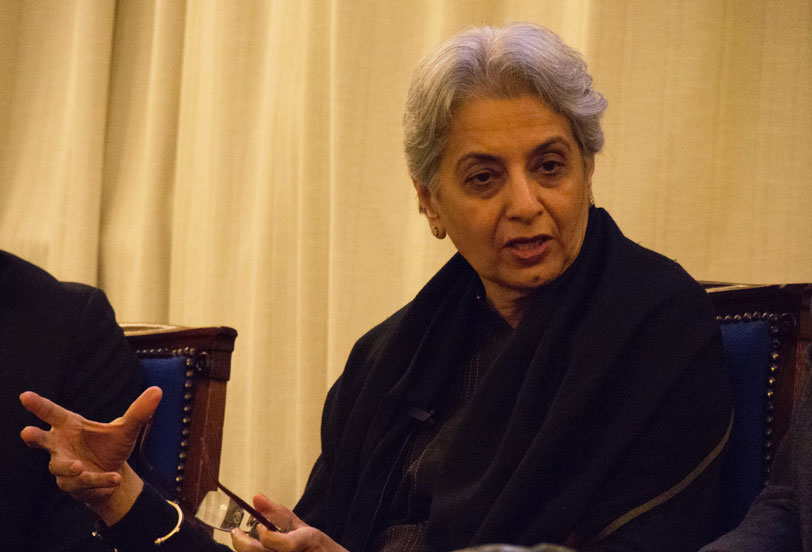
SOAS Project Launch: Global Research Network on Parliaments and People
Deepening Democracies. London, November 29, 2017
Till only a couple of years ago, the energies of democrats were focused on the strengthening or deepening of democracy in the Global South, including the BRICS countries. Now, suddenly, a series of events have turned the world upside down, and brought into question many of our settled, even complacent, assumptions about the triumphs of democracy in the Global North. The assumption, above all, that Anglo-American liberal-democracy stood on the firm foundations of a fine pedigree, philosophical and political, and time-tested historical practice. Now, with the Brexit referendum and the US presidential election, those foundations appear to be a little shakier than we had thought. Even that singular point of difference between the Global North and South – higher levels of citizen education and awareness – proved to be irrelevant to the outcome of these two votes, Brexit and the Trump election.
So, today, rather like Tolstoy’s unhappy families, all democratic societies are unhappy in their own way. What appears to be the dark side of democracy is arguably just the fulfilment of democracy’s logic, the democratizing of democracy, as it were. By failing to prevent the capture of democracy by elites, by failing to untether it from its deep links with capital, by failing above all to address the incompatibility between the political equality guaranteed by democracy and the growing material inequality generated by the capitalist economy, there is a worry that we have perhaps turned the democratic project over to those that may be more or less scrupulous, more or less neo-liberal, even more or less authoritarian, but can nevertheless speak to the demos with more powerful conviction than our enervated, hollowed-out discourse of liberal-democracy can. So, in the consolidated democracies of the North, the new democratic project is about renewing the democratic ideal.
The challenges faced by the younger, more fragile democracies of the South range widely from unstable transitions to democracy to lapses into authoritarianism; from the political effects of poverty and inequality to those of the curse of natural resources like oil. Depending on context, today’s democratic project in the South can be placed on a continuum, at one end of which you have the implanting of democratic institutions where they did not hitherto exist; somewhere in the middle, breathing life into the existing but empty shells of such institutions; and, at the other end, deepening reasonably functioning democracy to make it more inclusive and more responsive to the citizenry.
A contention that arguably lies at the heart of both projects – of democratic renewal in the North as much as of democratic beginnings in the South (broadly speaking) – is the discontent around the idea of Representative Democracy, embodied in the institutional form of parliaments or other elected legislatures. It is the representativeness of Representative Democracy that is being called into question – both where it has been formally successful for a couple of centuries, as also in places where it has yet to strike deep roots. Where it has been formally successful, Representative Democracy is perceived as having been captured by wealthy self-serving elites; where it is less firmly embedded, we hear idealistic calls for improved and more inclusive institutions. It is more than a little ironical that the very institutions that have provoked cynicism and dissatisfaction in the citizens of democracies in the Global North are precisely the ones that we aim to either put in place or strengthen in the Global South.
The Global Research Network on Parliaments and People that is being launched today – with its focus onDeepening Democracy in Extremely Politically Fragile States– aims to forge more robust connections between Parliaments and People. Parliaments, we know, are the pre-eminent institutional expressions of the principle of Representative Democracy. Butwho are the People? Across the world, North and South, from the USA to Hungary to Turkey, and from India to the Philippines, the reaction to the breakdown of Representative Democracy, to its legitimacy deficit and broken promises, has found expression in some version of populism that lays claim to being a purer or more genuine form of democracy.
Representative Democracy and Populism offer very different answers to this question of who the people are and what their place in a democracy is or should be.
In the classical liberal or thin version of Representative Democracy, the people’s will is carried out through a set of institutions that guarantee political equality in the election of representatives but one blind to difference. A thicker version, recognizing diversity, aims at legislative bodies that reflect the social composition of the population, to ensure that the interests, concerns and preferences of minorities or women or otherwise marginalized groups find voice in laws and policies.
When Representative Democracy fails these expectations, a propitious environment for populism is created. Populist politicians make grand claims to speak for the people, to provide a more responsive democracy than that offered by representative institutions.1 Populism invokes a singular conception of the people, which it claims to represent in its undifferentiated homogenous entirety, and to which it somewhat condescendingly attributes a lack of understanding and a cheerful propensity to be led. Direct and unmediated citizen participation in democracy is celebrated; representative institutions like elected legislatures are derided or even undermined. To the extent that populist leaders typically claim to be closer to the people and to represent them more effectively than mediating institutions like legislatures, populism could be seen as a sign of the breakdown of the connect between people and Parliament.
More worryingly, populism robs the idea of democracy of all normativity and reduces it to its foundational principle of raw numbers: democracy is about majority rule, not about the values we associate with it: equality, freedom, rights and justice. An electoral mandate provides a self-perpetuating justification for departures from the basic democratic principle of the equal moral worth of, and equal respect for, fellow-citizens. For the populist, whatever the majority wills and wants is fair. This majority could be a dominant religious or racial group – it could be Hindu supremacists in India or white supremacists in the United States, the legitimating principle is the same.
The ease with which the democratic idea can be suborned to a variety of political projects is worrying. We have seen how populism can appropriate democracy, even as it encourages anti-politics, on the one hand, and charismatic, even authoritarian, leadership on the other.
If this motivates us to think about recovering the core of the democratic core, so does the idea, popular in the 1990s, that it was perfectly legitimate to do your own democracy in your own way. This kind of DIY democracy may have run its course. The basic idea underlying it was plausible enough: that different societies have inherited cultural and societal characteristics to which the institutions and practices of democracy adapt.
In India, we were particularly attracted to this idea. And thereby hangs a cautionary tale. We observed that caste, far from being discarded by the onset of modernity, adapted to modernity and made it its own – caste associations and caste mobilization became and remain a force to reckon with in democratic politics, such that, as the cliché has it, from casting your vote, you began to vote your caste. This had significant positive implications. Historically excluded and disadvantaged groups found representation for the first time so democracy was undoubtedly deepened. But caste discrimination and caste violence have endured; the backlash to affirmative action has led to claim-making based on an invention of disadvantage by groups that are actually not disadvantaged – this dark side also finds brutal expression in the everyday life of our democracy. In short, till descriptive representation translates into substantive representation, the task of democratization is not done.
Let us accept that societies and cultures will mould democracy to local specificities and local conditions, that they will build democracies in their own particular image, that they will be “differently democratic”. Might it nevertheless be worth thinking about whether we should, in the midst of all these different vernaculars of democracy, strive to find a common core that we can define as substantively democratic, one that takes a form more meaningful than just the simulacra of representative institutions and elections, one that encompasses the normative values conveyed by the democratic ideal and animated by the agency of citizenship. How might we think about the elements of such a common core for the project of deepening democracy?
I would like to suggest that this has two aspects: the institutional and the normative. At the institutional level, we need to work towards:
- Creating or restoring the connect between people and parliaments
- Holding representatives accountable, and repudiating populist charlatans
- Fostering civic engagement in civil society
- Working towards inclusion through descriptive representation but without losing sight of the more difficult goal of substantive representation
- All in all, seek to deepen democracy in not just a procedural but also a substantive sense.
At the normative level, the multiple crises that afflict our present encourage us to recall the ideals of democracy and the normative values it entails; to contest, at a normative level, the poverty of the idea of democracy as nothing more than majority rule. Ideas of equality and non-discrimination will help reaffirm our commitment to multiculturalism, as much as valuing diversity would make us sensitive to the plight of minorities, and the Kantian idea of hospitality to strangers will enable us to appreciate our obligations to refugees. The idea of solidarity is needed to sensitize us to the most morally abhorrent aspects of inequality; and fraternity to sensitize us to climate change and inter-generational environmental justice.
I do not deny the perils of universalism, nor do I under-estimate the seriousness of the critique of democracy as a “universal” one-size-fits-all ideal. Local ways of doing democracy differently are both valid and desirable. Some of these – like participatory budgeting or social audits – have been extremely inventive and powerful, empowering and enabling. But today, we perhaps need to acknowledge that we are in a place that requires us to think afresh, in and for the 21st century, about whether the democratic idea has a common core – one that, no matter where and how it travels, still speaks to a recognizable and estimable idea of democracy in which the people, as citizens, have agency.
1. One populist leader in India advanced the idea of referenda (including text messaging referenda!) to ensure that citizens’ voices are heard more frequently on an on-going basis.

